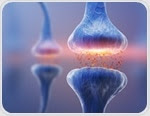| ||||||||||||||||||||||||||||||||||||
| ||||||||||||||||||||||||||||||||||||
| ||||||||||||||||||||||||||||||||||||
| ||||||||||||||||||||||||||||||||||||
| ||||||||||||||||||||||||||||||||||||
| ||||||||||||||||||||||||||||||||||||
martes, 4 de diciembre de 2018
Parkinson's Disease - Dec 4, 2018 Edition :: Medical News | Medical Articles
Medical News | Medical Articles
Suscribirse a:
Enviar comentarios (Atom)


_94e83b16dbf24a0b9ed872a673b0ba4d-310x240__636795077063205693_multisizecolor_195_white.jpg)




_23f4253c02e5472785771031a64df8ec-310x240__636795077096565084_multisizecolor_150_gray.jpg)

_d7a4d993e25645728fb65294d5fde6ad-310x240__636795077118781849_multisizecolor_150_gray.jpg)
































No hay comentarios:
Publicar un comentario